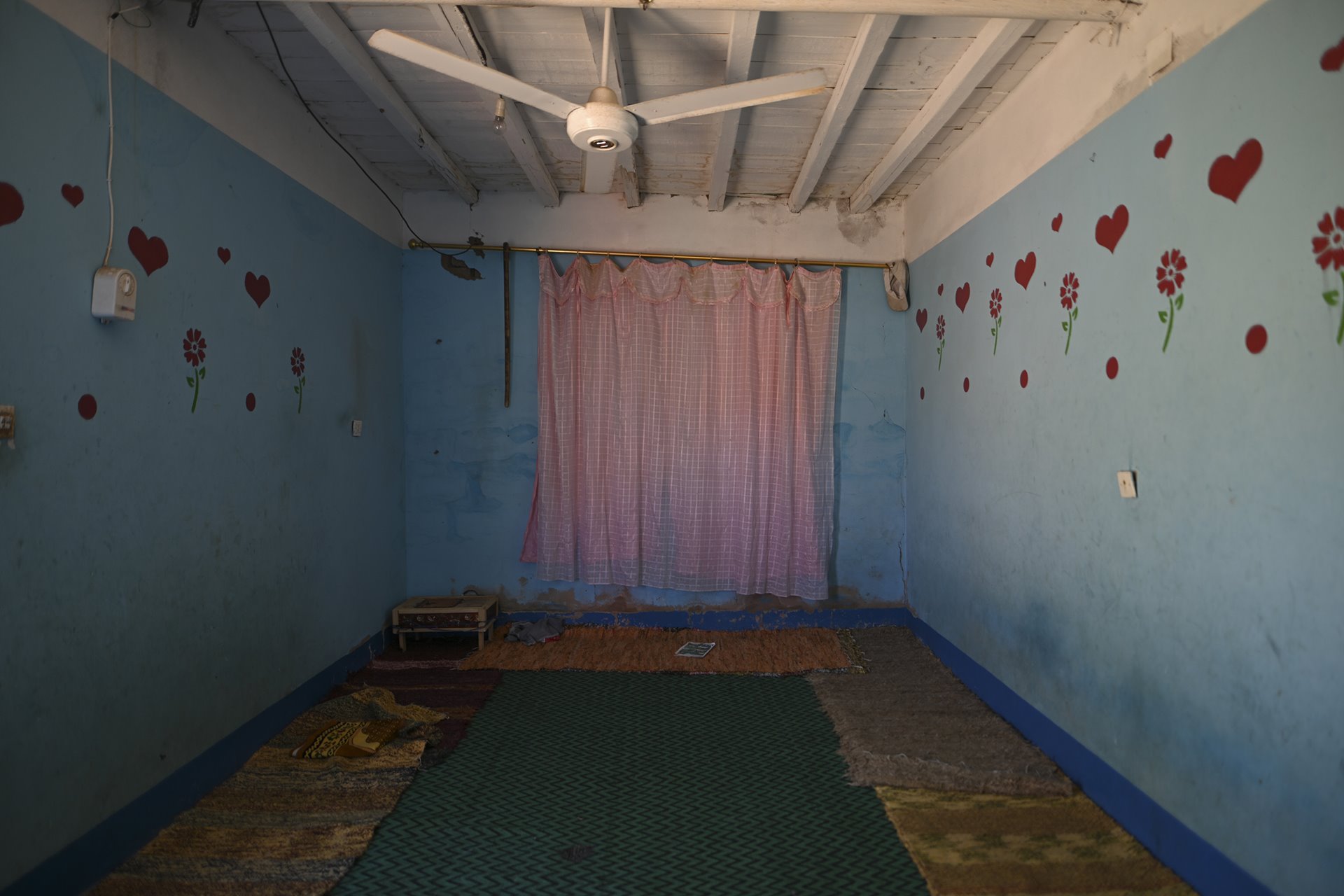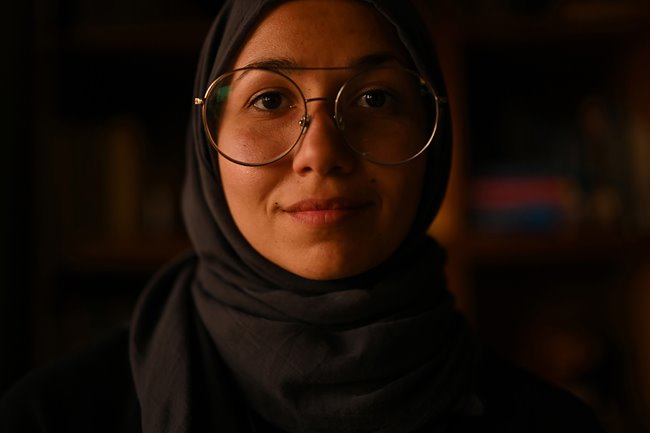Ashraf and Nora’s home in Al-Tarfa village in St. Catherine, South Sinai, Egypt. Considered sacred grounds, Bedouin homes are open to men from the family or female neighbors. Strangers and friends are welcomed to the guest yard where they are greeted by the children and the man of the house. Depending on the closeness of their relationship to the family, specific chambers are opened.
This collaborative project, made with members of the Jebeliya community, reflects on what it means to be Bedouin in contemporary times. It focuses on the interconnectedness between people and land, which the photographer believes defines the notion of belonging. Bedouins have inhabited the Sinai peninsula for centuries and face stigma and discrimination in Egypt. They face discrimination in Egyptian society to this day due to their perceived role as collaborators during the Israeli occupation of the Sinai from 1967 to 1982, when the Bedouins who resisted the occupation remained on their land to protect it. This discrimination has resulted in Bedouins being barred from joining the army or police force and serving in government, and the profits from the Sinai’s lucrative tourism industry bypassing them.
As an Indigenous community, Bedouins have been perceived in the media as isolated from, and a threat to, modern society. Stories of Bedouin women, who were prohibited from being seen by men without consent up until the 1990s, were consistently taken out of context and their images were used without their permission. Challenging this stereotype in the project, portraits of women from the community, printed on fabric, were embroidered by the women themselves, contributing to and taking control of their own representation. While the female participants collaborated through embroidery, the men from the community contributed with handwritten poetry, resulting in a multimedia journey through the identity of the Bedouin community in South Sinai, Egypt.
The photographer is a Bedouin rights activist and has been an active member of the community for the past 15 years.

